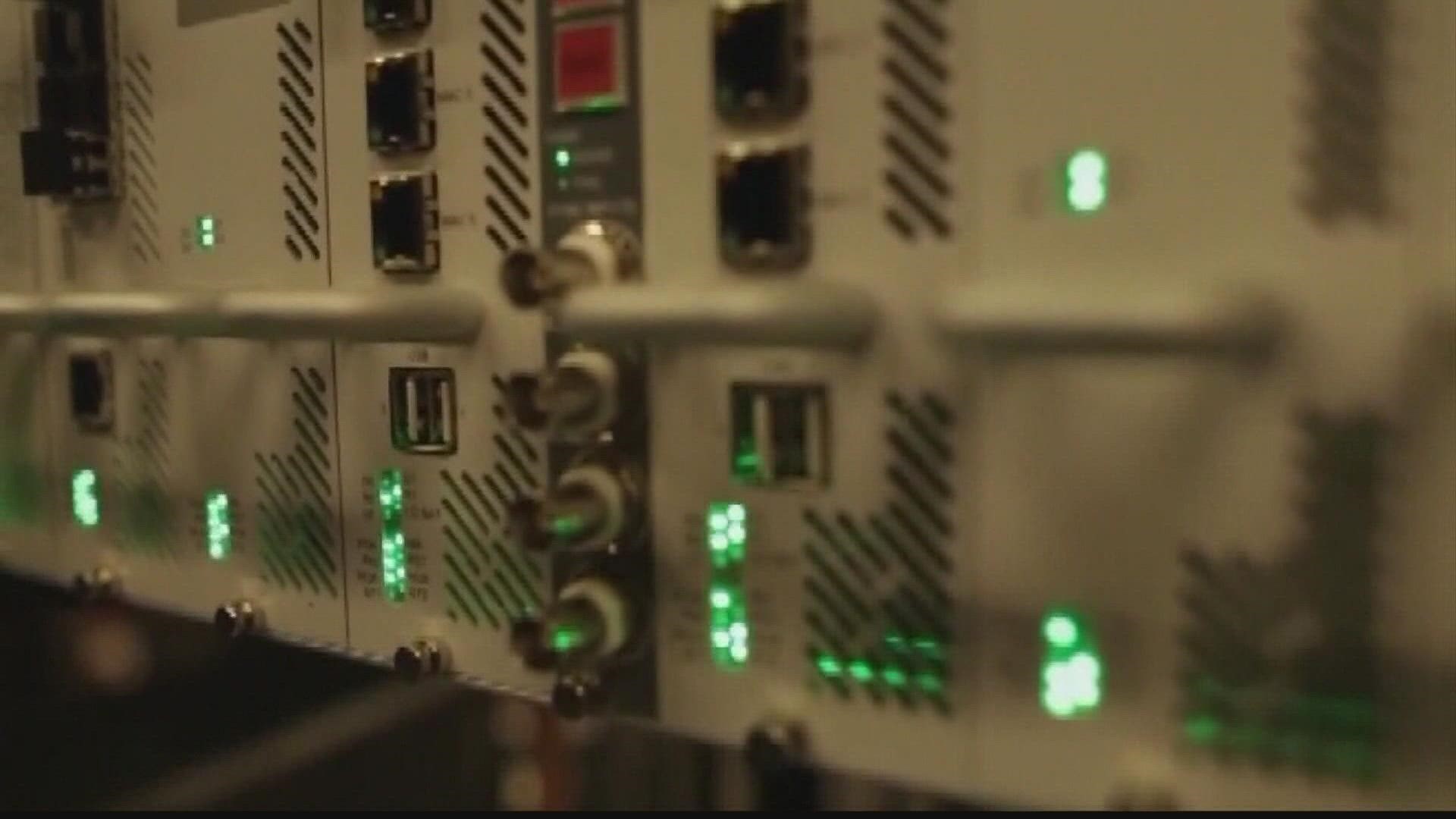ATLANTA — This week, the U.S. government issued warnings of possible cyberattacks from Russia as the conflict in Ukraine intensifies.
"If Russia pursues cyberattacks against our companies, our critical infrastructure, we are prepared to respond," President Joe Biden said during a speech Thursday. "For months, we have been working closely with our private — with the private sector to harden their cyber defenses, sharpen our ability to respond to Russian cyberattacks as well."
The worry follows a ransomware attack last year that shut down Alpharetta-based Colonial Pipeline, a similar attack against meatpacking company JBS and the Solarwinds hack in 2020 that compromised the data of several federal agencies and about 100 private companies, according to the White House.
Russia-based organizations have been linked to or accused of each attack.
"I think it is rather unlikely that this Ukraine crisis would lead to a cyber-conflict between the United States Russia," said Jeff Berejikian with the University of Georgia's Department of International Affairs.
In Berejikian's opinion, there are at least two scenarios though that could make a cyberattack more likely. First, if a Russian cyberattack against Ukraine grows out of control, either intentionally or accidentally, and it seeps into the West.
Second, if continued and increased sanctions back Russia into a corner or military support being sent to Ukraine by the U.S. and NATO allies send Russia over an edge.
"They might be willing to use a demonstration of cyber capability as a way to push back against the West and say, 'stop'," Berejikian said.
If an attack comes, Berejikian said it would be unlikely for the focus to be critical infrastructure or an effort to cripple the U.S. economy, as that could be viewed as an act of war.
An attack would be more likely to target victims similar to past attacks while exposing vulnerabilities and demanding attention.
"Financial institutions, large corporations, government offices, and services. Those are the kind of things Russia is doing right now in Ukraine, so we might expect them in the unlikely event that something happens here in the U.S.," Berejikian said.
Cyber security experts though say even the risk of an attack, especially against individuals is low, now is always the best time to secure your data.
"Never going to be the push of a button and we are suddenly safe, it is always going to be part of our lives," said Lee Heisman, CEO of Savant, an Atlanta-based IT company.
Heisman said the best place to start when it comes to cyber security, is saving your important files in multiple places.
"The most important thing you can do is have a backup of your data," Heisman said. "Because if you're breached or hacked that data is invaluable. Ransomware is another hot topic. As you know with ransomware people say don't pay the ransomware and they are right because less than 8 percent get all their information back."
Heisman also recommends protecting your accounts by changing your passwords often, using two-factor authentication on accounts so you can be alerted if someone attempts to access them, and consider using a password manager program.
"Password managers like Last Pass or Dashlane -- they're good to get, they're really really important and they change your password for you. You never have to know what you're typing. The system will automatically put it in."
Even if the greater risk is to government offices or corporations, Heisman said individuals should still be vigilant, as often they might also be in possession of your personal information.
"If these companies that are compromised are impacted, what can you do?" he said. "That is the real fear. Because with Russia and if there are hacks and breaches that are going on, sometimes it isn't directed at you, sometimes it is at the people and the companies that you use."
That is why he recommends being aware of how to freeze your credit if your data is compromised as part of a hack or ransomware attack.
Heisman also said you should consider signing up with the IRS for a six-digit identity protection pin.
"This way no one is going to breach and get your tax data or be able to do anything on your taxes which is the most important thing for protecting your safety and your identity," he said.

